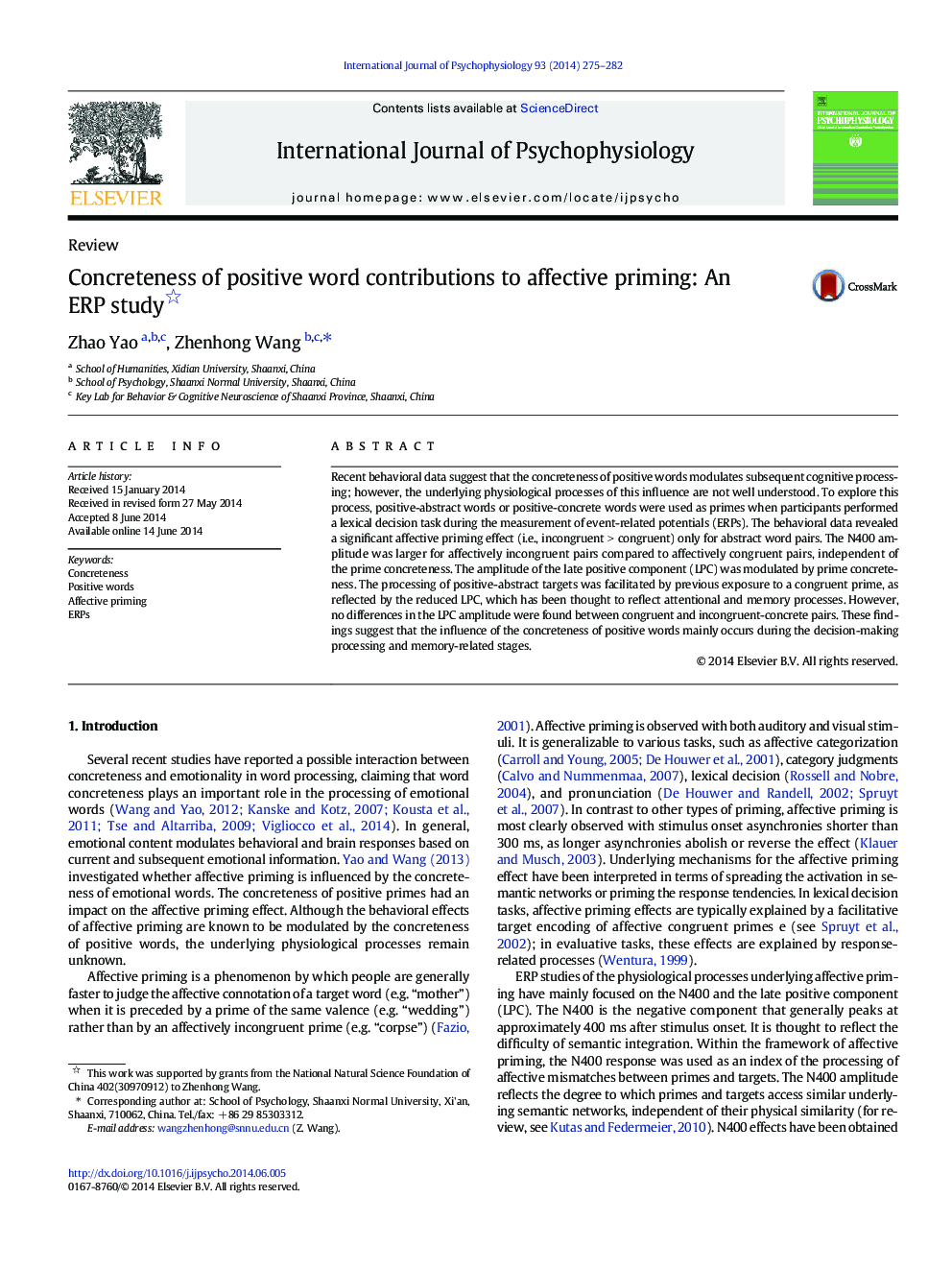| کد مقاله | کد نشریه | سال انتشار | مقاله انگلیسی | نسخه تمام متن |
|---|---|---|---|---|
| 930246 | 1474415 | 2014 | 8 صفحه PDF | دانلود رایگان |

• We examined the role of word concreteness in the processing of affective priming.
• Positive-abstract primes facilitated the processing of target words.
• The LPC for affective priming was modulated by prime word's concreteness.
• This influence mainly occurred in the later time-windows.
Recent behavioral data suggest that the concreteness of positive words modulates subsequent cognitive processing; however, the underlying physiological processes of this influence are not well understood. To explore this process, positive-abstract words or positive-concrete words were used as primes when participants performed a lexical decision task during the measurement of event-related potentials (ERPs). The behavioral data revealed a significant affective priming effect (i.e., incongruent > congruent) only for abstract word pairs. The N400 amplitude was larger for affectively incongruent pairs compared to affectively congruent pairs, independent of the prime concreteness. The amplitude of the late positive component (LPC) was modulated by prime concreteness. The processing of positive-abstract targets was facilitated by previous exposure to a congruent prime, as reflected by the reduced LPC, which has been thought to reflect attentional and memory processes. However, no differences in the LPC amplitude were found between congruent and incongruent-concrete pairs. These findings suggest that the influence of the concreteness of positive words mainly occurs during the decision-making processing and memory-related stages.
Journal: International Journal of Psychophysiology - Volume 93, Issue 3, September 2014, Pages 275–282